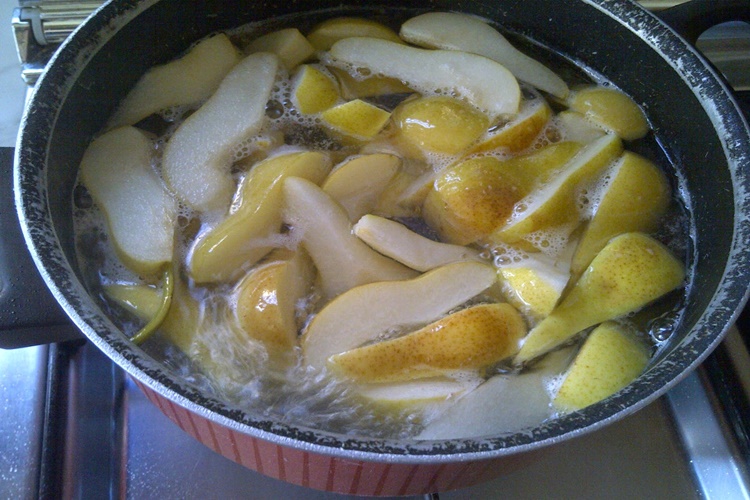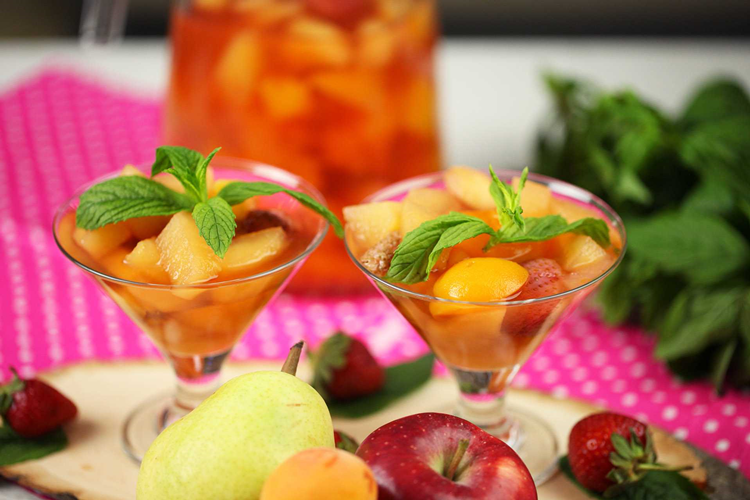Boiling milk is a common practice in many households, but the question of how long milk should be boiled remains a topic of debate among health enthusiasts and home cooks alike. Properly boiling milk ensures its safety and enhances its taste, making it an essential step in food preparation. Whether you're preparing a simple cup of tea or cooking a recipe that requires boiled milk, understanding the right duration and technique is crucial for achieving the best results.
Boiling milk serves multiple purposes, including sterilization, flavor enhancement, and preventing spoilage. However, over-boiling or under-boiling can negatively affect its nutritional value and texture. This guide aims to provide a detailed explanation of how long milk should be boiled and the factors that influence the boiling process.
By the end of this article, you'll have a clear understanding of the science behind milk boiling, the ideal duration, and tips to ensure your milk is perfectly boiled every time. Let's dive in!
Read also:Uncle Roger Girlfriend Sabrina The Untold Story
Table of Contents
- Why Should You Boil Milk?
- How Long Should Milk Be Boiled?
- Different Types of Milk and Their Boiling Requirements
- Health Benefits of Boiling Milk
- Risks of Over-Boiling Milk
- Tips for Perfectly Boiling Milk
- Common Mistakes to Avoid
- Delicious Recipes Using Boiled Milk
- Frequently Asked Questions
- Conclusion
Why Should You Boil Milk?
Boiling milk is not just a traditional practice but a scientifically-backed method to ensure its safety and improve its quality. Below are some reasons why boiling milk is essential:
1. Sterilization
Raw milk may contain harmful bacteria such as E. coli, Salmonella, and Listeria. Boiling milk effectively kills these pathogens, making it safe for consumption. This is particularly important if you're using unpasteurized milk.
2. Flavor Enhancement
Boiling milk can enhance its flavor by reducing its water content slightly, concentrating the milk solids and creating a richer taste. This is why many recipes call for boiled milk, especially in desserts and beverages.
3. Prevention of Spoilage
Boiling milk extends its shelf life by eliminating bacteria that cause spoilage. While pasteurized milk is already treated to remove harmful microorganisms, boiling it further ensures its longevity, especially in warm climates.
How Long Should Milk Be Boiled?
The duration of boiling milk depends on its type and purpose. However, as a general rule, milk should be boiled for 2 to 3 minutes to achieve the desired results. Here's a breakdown of the ideal boiling times:
1. Pasteurized Milk
Pasteurized milk requires less boiling time since it has already undergone a heat treatment process. Boiling it for 1-2 minutes is sufficient to enhance its flavor and ensure safety.
Read also:The District Room Photos Discovering The Perfect Stay Experience
2. Unpasteurized Milk
Unpasteurized milk should be boiled for 3-5 minutes to eliminate harmful bacteria. This extended boiling time ensures that all pathogens are destroyed, making it safe for consumption.
3. Goat's Milk
Goat's milk has a lower boiling point than cow's milk and should be boiled for 2-3 minutes. Over-boiling goat's milk can cause it to curdle, affecting its texture and taste.
Different Types of Milk and Their Boiling Requirements
Not all milk is the same, and each type has specific boiling requirements. Below is a table summarizing the boiling times for various types of milk:
| Type of Milk | Boiling Time | Special Considerations |
|---|---|---|
| Cow's Milk | 2-3 minutes | Pasteurized milk requires less time; unpasteurized milk needs longer boiling. |
| Goat's Milk | 2-3 minutes | Avoid over-boiling to prevent curdling. |
| Almond Milk | 3-4 minutes | Monitor closely to prevent separation. |
| Soy Milk | 3-5 minutes | Boil thoroughly to reduce beany flavor. |
| Rice Milk | 2-3 minutes | Boil gently to avoid burning. |
Health Benefits of Boiling Milk
Boiling milk offers several health benefits that make it a preferred choice for many:
- Improved Digestibility: Boiling milk breaks down lactose, making it easier to digest for lactose-intolerant individuals.
- Enhanced Nutrient Absorption: Boiling milk can improve the absorption of certain nutrients, such as calcium and vitamin D.
- Reduction of Allergens: Boiling milk reduces the presence of allergens, making it safer for people with milk allergies.
Risks of Over-Boiling Milk
While boiling milk has numerous benefits, over-boiling can lead to negative consequences:
1. Nutrient Loss
Over-boiling milk can degrade heat-sensitive nutrients like vitamin C and B vitamins, reducing its nutritional value.
2. Texture Changes
Prolonged boiling can cause milk to curdle or separate, affecting its texture and taste. This is especially true for plant-based milk alternatives.
3. Flavor Alteration
Over-boiling milk can create a burnt taste, which may not be desirable in certain recipes. It's essential to monitor the boiling process closely to avoid this issue.
Tips for Perfectly Boiling Milk
To ensure your milk is boiled perfectly every time, follow these tips:
1. Use the Right Equipment
Boil milk in a heavy-bottomed saucepan to distribute heat evenly and prevent scorching.
2. Stir Continuously
Stirring milk while boiling prevents it from sticking to the bottom of the pan and ensures uniform heating.
3. Monitor Temperature
Use a kitchen thermometer to monitor the temperature of the milk. For pasteurized milk, aim for 185°F (85°C), while unpasteurized milk should reach 195°F (90°C).
Common Mistakes to Avoid
Here are some common mistakes people make when boiling milk and how to avoid them:
- Not Stirring Enough: Failing to stir milk while boiling can cause it to burn or boil over.
- Using High Heat: Cooking milk on high heat can lead to scorching and curdling. Use medium heat instead.
- Ignoring Temperature: Not monitoring the temperature can result in over-boiling or under-boiling, affecting the milk's quality.
Delicious Recipes Using Boiled Milk
Boiled milk is a versatile ingredient that can be used in a variety of recipes. Here are a few ideas to inspire you:
1. Classic Hot Chocolate
Boiled milk forms the base of a rich and creamy hot chocolate. Add cocoa powder, sugar, and a pinch of salt for a comforting winter treat.
2. Rice Pudding
Boiling milk is essential for making creamy and flavorful rice pudding. Combine boiled milk with cooked rice, sugar, and vanilla extract for a delightful dessert.
3. Masala Tea
Boiled milk is a key ingredient in traditional Indian masala tea. Combine boiled milk with water, tea leaves, and spices like cardamom and cinnamon for a fragrant and aromatic drink.
Frequently Asked Questions
1. Can I boil milk in the microwave?
Yes, you can boil milk in the microwave, but it requires careful attention to prevent it from boiling over. Heat the milk in short intervals, stirring between each interval, to achieve the desired temperature.
2. Is boiling milk necessary if it's already pasteurized?
While pasteurized milk is safe to consume without boiling, boiling it can enhance its flavor and extend its shelf life. It's a personal preference, but boiling is recommended for optimal results.
3. Can I freeze boiled milk?
Yes, boiled milk can be frozen, but its texture may change upon thawing. It's best to use frozen boiled milk in recipes where texture is not critical, such as baking or cooking.
Conclusion
Boiling milk is a simple yet crucial step in ensuring its safety and enhancing its quality. By understanding the ideal boiling times and techniques, you can achieve perfectly boiled milk every time. Remember to avoid common mistakes and follow the tips provided to get the best results.
We hope this guide has answered your questions about how long milk should be boiled and provided valuable insights into the process. Share your thoughts and experiences in the comments below, and don't forget to explore other articles on our site for more informative content. Happy cooking!


